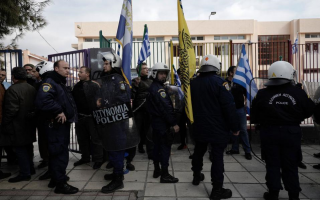Ombudsman says Greek crisis has all the signs of a humanitarian crisis

After eight years of recession and increasing belt-tightening, Greece’s economic crisis is showing all the signs of a humanitarian crisis, Greek Ombudsman Andreas Pottakis warns in the authority’s annual report for 2016.
In the report, which was submitted to Parliament on Tuesday, Pottakis says that social welfare services and policies, as well as tax authorities were at the forefront of his office’s investigations last year.
“In the 18 years of its operation, the Ombudsman has investigated around quarter of a million citizens’ complaints. In 2016, the number of new complaints came to around 12,000, showing a marked increase from 2015,” added Pottakis.
He said that the majority of the claims came from citizens who are unable to meet their basic needs and obligations, a development that he says can be attributed to the fact that the public administration is increasingly unable to respond to the needs of vulnerable members of society or lacks the flexibility to act outside its strict purview.
Pottakis stressed that the notion of vulnerability had also changed over the course of the crisis, encompassing a broader section of society, including individuals who are not longer able to maintain a dignified standard of living.
In regards to the migration crisis, Pottakis said it is a “humanitarian crisis within a humanitarian crisis.” He noted that while 2016 did not see the huge influxes of the previous year, numerous issues arose in relation to the management of the crisis and the broader social and economic problems that stem from it.
According to the report, social security, zoning and taxation were at the forefront of citizens’ complaints last year: 29.1 percent of administrative complaints were directed against social security funds and agencies under the purview of the Labor Ministry, 21.2 percent were against local authorities, 11.9 percent concerned the Ministry of Interior (which includes decentralized administration and the police), 11.8 percent concerned the Finance Minister and 7.8 percent the Education Ministry.





